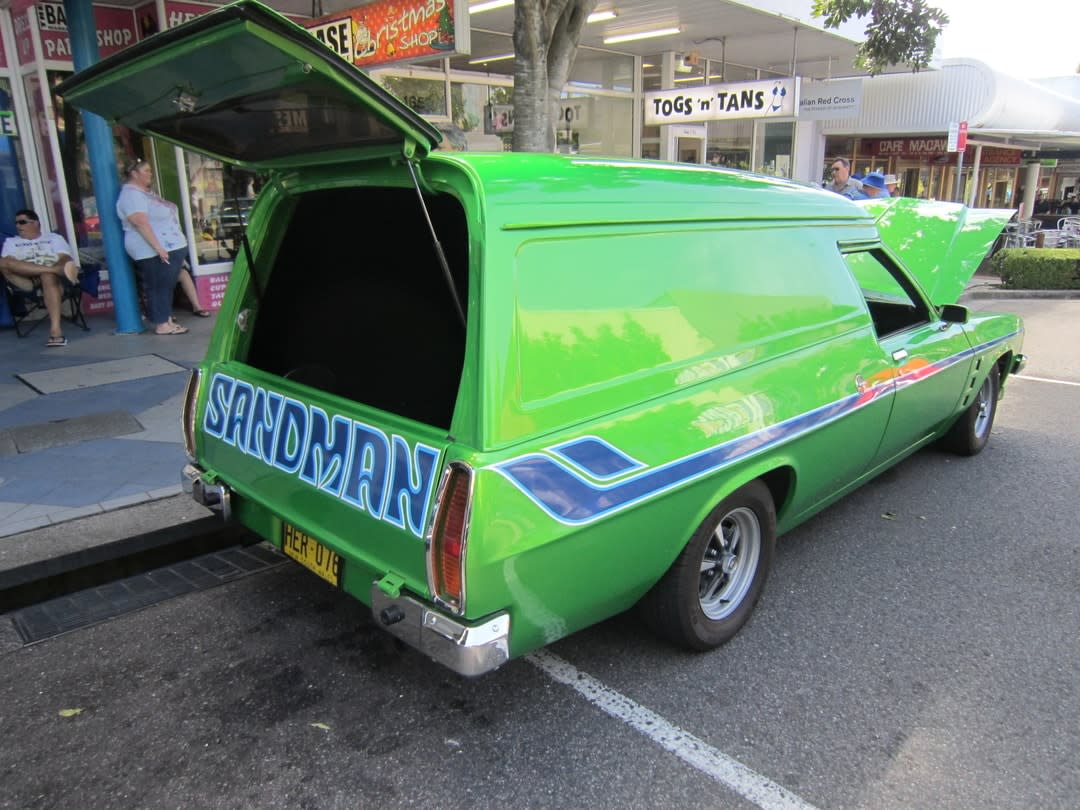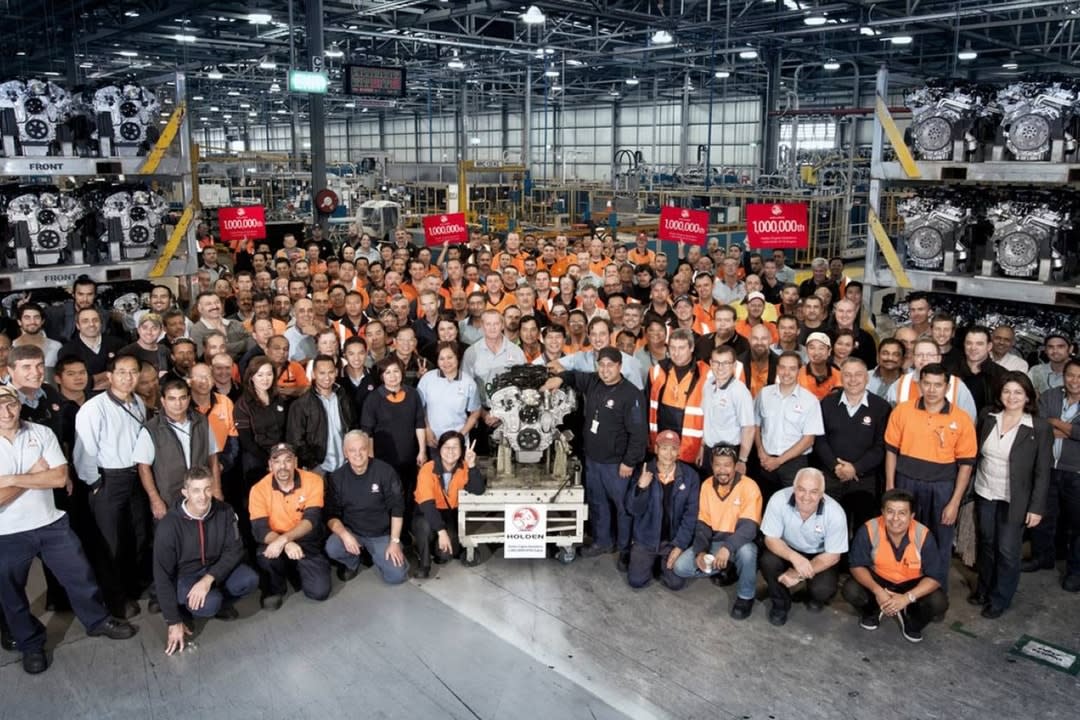
Like a beloved relative who dies after a long illness, Holden’s decision to leave Australia wasn’t surprising – but it is a cause for sadness, and an opportunity to look back on what's been lost.
Generations of Australians grew up with Holdens – for many people, Sunday drives, family holidays and first driving lessons all happened in a Holden. An Australian television comedy was named after the Kingswood, and surfers drove a Sandman, which had room for surfboards and a mattress in the back. In 1979, the Holden Commodore achieved record sales.

The Holden was named after a South Australian family who began as saddlers in 1856 and later moved into car manufacturing. When the US-based General Motors bought the company in 1931, it kept the family name and, post-war, used it to brand a car made for the local market.
Most significantly, tens of thousands of Australians and their families relied on General Motors Holden. When GMH stopped manufacturing cars in Australia in 2017, oral historians in South Australia and Victoria, the home of Holden HQ, began collecting memories from the company’s workers for a project to be housed at the National Library of Australia.
Many of these workers were immigrants, who played an important role in assembling the Australian car.
Monash University's Professor Alistair Thomson is a key part of the project, and says “every former Holden worker I have interviewed … has been angry about General Motors’ withdrawal from Australian car manufacturing, and about our federal government’s decision not to subsidise an Australian car industry.
“They argue that governments in every other significant economy continue to support a national car industry, not just because of the direct and indirect employment it ensures, but also because of the essential manufacturing skills the industry sustains and develops.”
He says that in their interviews these workers also often referred to the Holden “family” – a family with its own tensions and hierarchies.
“If workers were loyal, their loyalty was earned not by the company, but by good bosses who treated them well,” he says.
The immigrant experience
Holden provided steady work, especially for new migrants who spoke little English but found their first working home in Holden’s factories.

Italian migrant Tony Liberatore, for example, started at the GMH Fishermans Bend plant in 1954.
“When Tony Liberatore’s foreman asked him to work on Christmas Day, Tony knew his wife would not be happy, but agreed he would do it for the foreman but ‘not for GM’,” Professor Thomson says.
“The foreman repaid the favour by helping Tony win accreditation as a qualified mechanic despite having no formal training.”
He also tells the story of Alex Angelico, a leading hand in prototype development at the Fishermans Bend Build Up Area in the early 2000s.
“When one of his team was ‘having a downer’, he allowed him to sleep it off in a car model which was hoisted into the air so he would be out of sight.
“If you looked after your team, they would work with you.”
Men who started as apprentices at 15 recalled the ‘father figures’ who helped them cope with the intimidating noise, overpowering smells and frenetic activity of a car plant.
Bob Pulford learned this lesson the hard way. He started on the shop floor in the Dandenong paint shop in 1958. Professor Thomson says that during his interview, Pulford “teared up when he recalled a foreman who forced him to work overtime rather than attending the birth of his child”.
“Bob ended up in a senior Holden training role and explained that a good manager would ‘get people to want to work for you’.”
The Australian-born Pulford also said that he learned about other cultures from his “new Australian” workmates at Holden – even taking Italian lessons so he could speak to the men on his line.
Holden had its own class system, with “separate canteens for three grades of workers: the ‘plebs’ from the shop floor, white-collar ‘staff’, and executive ‘A Groupers’,” Professor Thomson says.
“Workers recall ‘dictatorial’ management cultures and ‘mongrel managers’, especially in the early post-war decades, and then again in the 2000s as sales declined and American bosses became more prominent.
"They recall bitter industrial strife and shop-floor militancy in the late 1960s and early 1970s, periodic lay-offs when supply outstripped demand, and redundancies as the forces of global capitalism closed Australian factories.”
“Workers recall ‘dictatorial’ management cultures and ‘mongrel managers’, especially in the early post-war decades, and then again in the 2000s as sales declined and American bosses became more prominent."
On the other hand, GMH also generated company loyalty, he says.
“Men who started as apprentices at 15 recalled the ‘father figures’ who helped them cope with the intimidating noise, overpowering smells and frenetic activity of a car plant. The Holden Social Club was a hub of sporting and social activities for employees from all levels and sectors, and the Holden Family Christmas Party is a favourite memory for workers and their children.
“Employee participation schemes encouraged workers to devise production improvements, with cash prizes for successful innovations.
“Employee development schemes provided training and promotion opportunities. Some managers, in certain periods, implemented ‘people-centred’, ‘participative’ management – and workers responded positively to such collegial approaches.”
Tony Liberatore stopped working at Holden in 1988 when the Dandenong Vehicle Assembly Plant closed. He said he was “very sad” to farewell his workmates and lose his “second family”.
In their own words
The Holden oral history project began just after General Motors Holden closed its last car assembly plant at Elizabeth in Adelaide in 2017.
At that stage, GMH said it would no longer make cars in Australia, but there would still be a Holden car, with Australian design, testing and sales. GMH even agreed to contribute funds to the Australia Research Council-funded Linkage project, alongside other industry linkage partners The National Motor Museum and the National Library of Australia, Professor Thomson says.
Then, on February 17, 2020, Holden’s Senior Vice-President (International Operations) Julian Blissett announced the brand would be retired from sales in Australia and New Zealand. Mr Blissett said the decision was “based on global priorities and does not reflect the hard work, talent and professionalism of the Holden team”.
“Holden was not always a happy family, yet for many workers, over many years, Holden provided steady, well-paid work, and generated pride in creating ‘Australia’s own car’,” Professor Thomson says.
“Holden was made by new and old Australians, but it was owned by a US company that, in the end, was motivated by profit more than people.”
Former Holden workers who are interested in being interviewed for the project should contact the project officer, Clare Parker, via email: holdenproject@adelaide.edu.au, or telephone: (08) 8313 6352. They're especially keen to interview women, migrant and shop-floor workers, as well as people who worked at Fishermans Bend or the Lang Lang testing centre in recent years.





